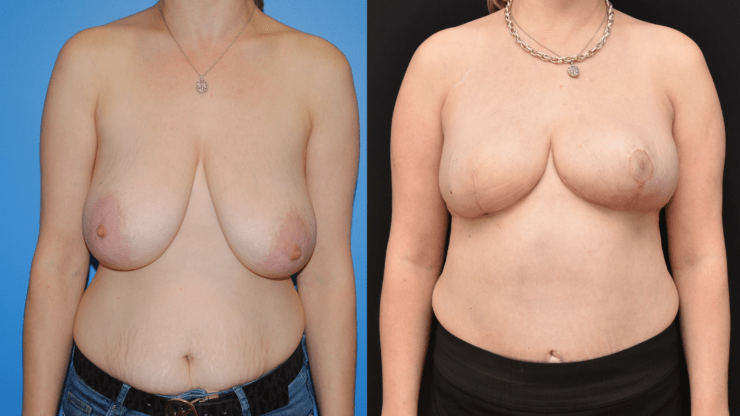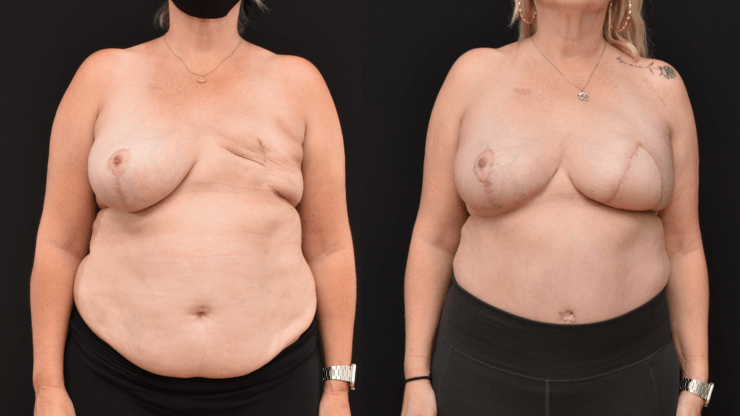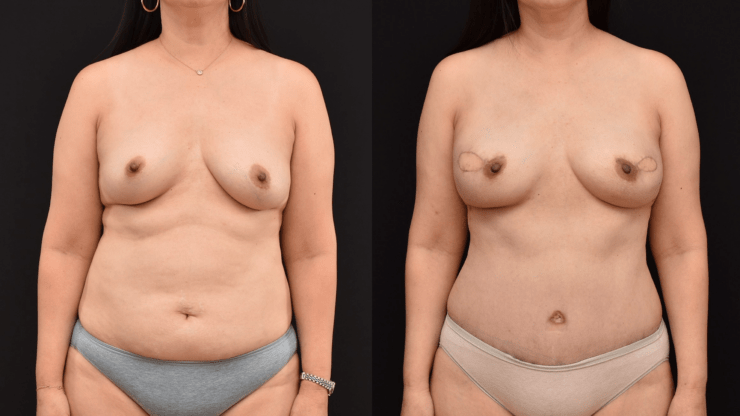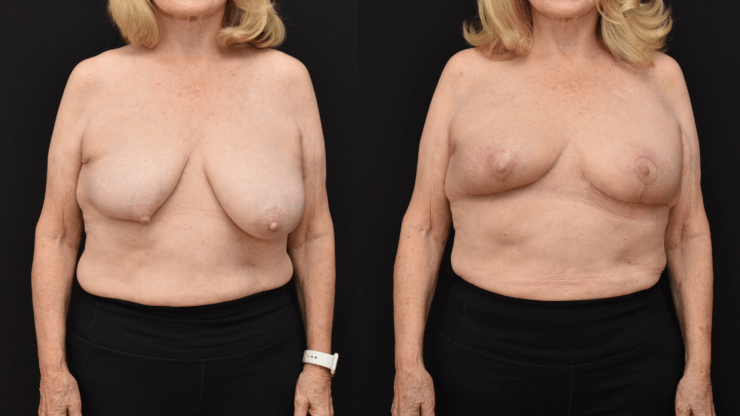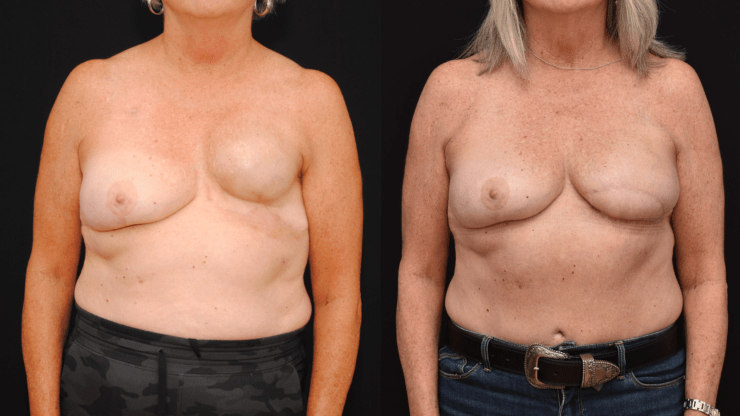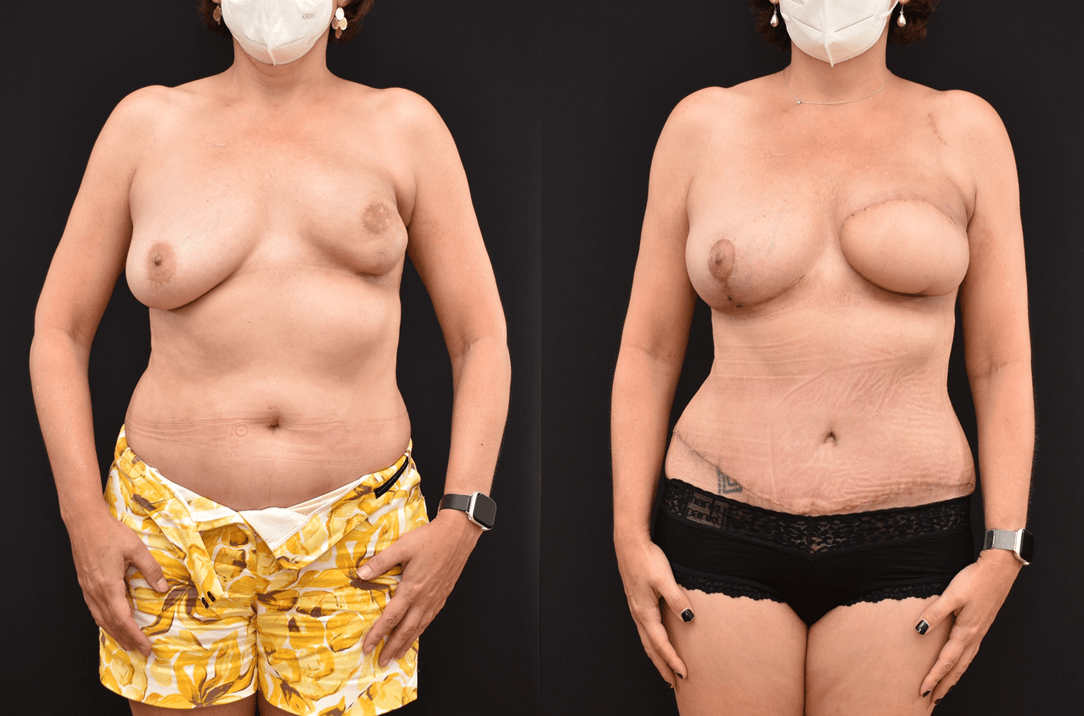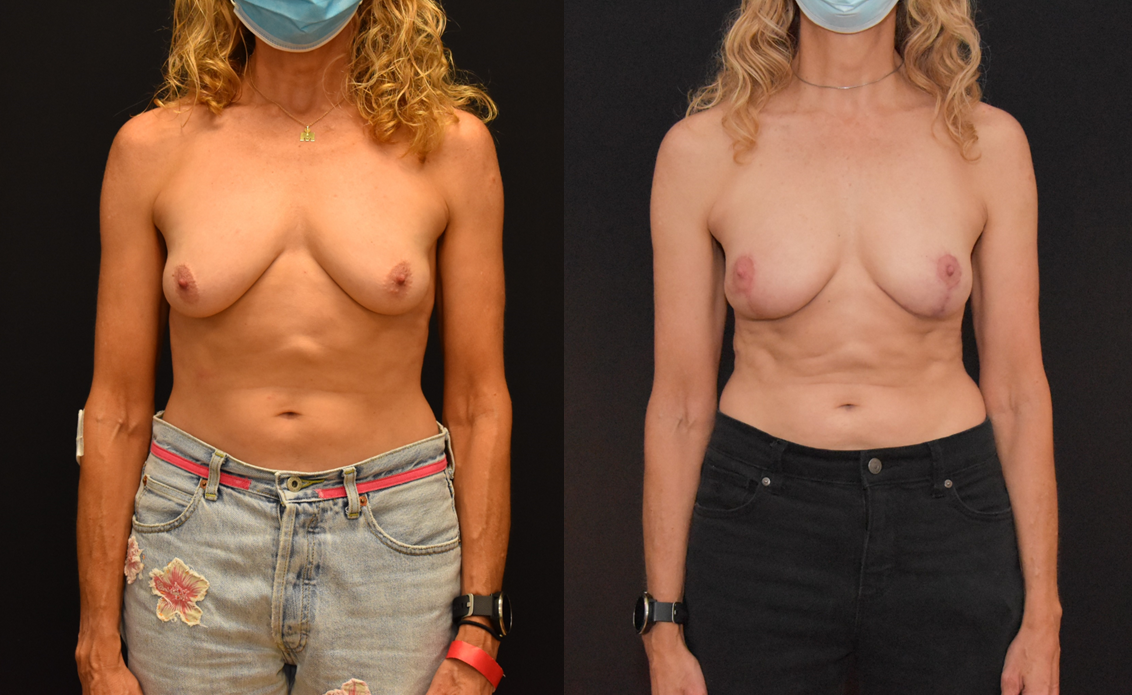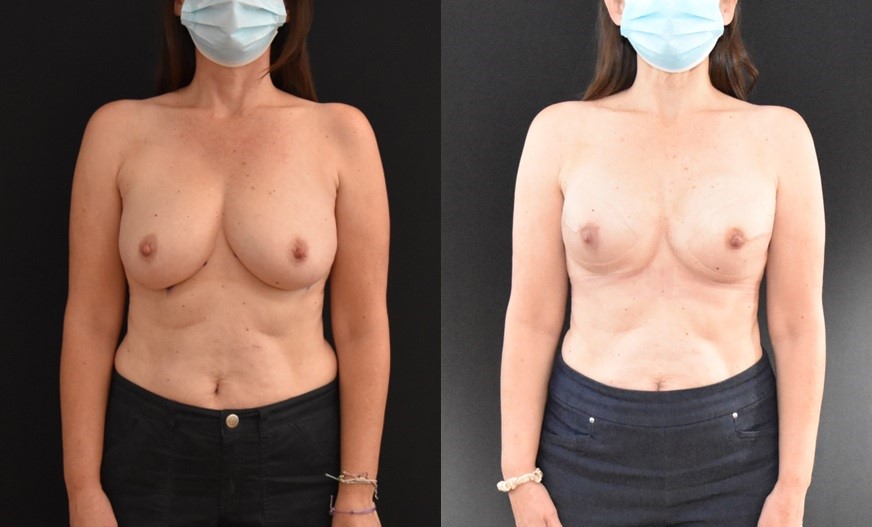In the ptotic patient and when the patient would like to have an autologous reconstruction, it is helpful to reconstruct the breast with an inverted-T skin pattern. The photograph demonstrates before and after breast reconstruction with a Deep Inferior Epigastric Artery Perforator Flap. The left breast underwent mastopexy reduction to set a new goal position to match. The right breast…
